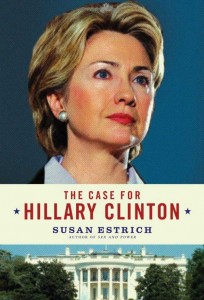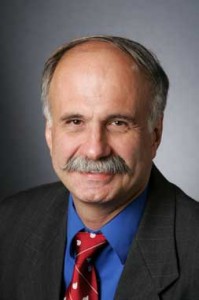Faculty Authors Q&A
Faculty Bios
Aimee Bender is a professor of English in the Dornsife College of Letters, Arts and Sciences. Her latest book is The Particular Sadness of Lemon Cake.
Felix Gutierrez is a professor of journalism and communication in the USC Annenberg School for Communication & Journalism and a professor of American studies and ethnicities in Dornsife. His latest co-authored book is Racism, Sexism, and the Media: The Rise of Class Communication in Multicultural America.
Oliver Mayer is an associate professor of dramatic writing at the USC School of Theatre. His latest play is Fortune is a Woman.
T.C. Boyle is a Distinguished Professor of English in USC Dornsife. His latest book is When the Killing’s Done.
Mike Gruntman is a professor of astronautics in the Viterbi School of Engineering. His latest book is Enemy Amongst Trojans: A Soviet Spy at USC.
Susan Estrich is the Robert Kingsley Professor of Law and Political Science at the Gould School of Law. Her most recent book is The Case for Hillary Clinton.
Do you ever feel like teaching gets in the way of your writing/research or vice versa?
AIMEE BENDER: The balance is tricky. Reading time gets scarce, and summer is crucial that way. I write in the mornings, which helps, because by the time I’m teaching, that part of my day has already happened.
FELIX GUTIERREZ: I think writing informs my teaching. It keeps me rethinking. The students are very helpful, [their] generation gives newer insights. I think my writing is better because I am teaching.
OLIVER MAYER: Teaching informs and fuels my writing research. Interacting with young people keeps me young. But occasionally I have something burning in me that I can’t wait to write at the same time that I’m grading or teaching or prepping for a class. When that happens, I try to take a deep breath and try not to get frustrated. The truth is there is time for everything to get done, teaching and writing, even when it doesn’t feel like it.
Where do you do your writing?
T.C. BOYLE: Both at home and in a place I rent in the Sequoia National Forest. When I’m in the Sequoias I get more writing and reading done than I do down here in Santa Barbara, simply because of the boredom factor. I find that crushing boredom is highly productive.
MIKE GRUNTMAN: All writing I can only do at home because when I get to campus, my door is open and students come in nonstop with all kinds of issues, problems, challenges, requests. Staying at home helps to concentrate. On campus, it’s practically impossible.
MAYER: I like to write in my office on campus. I play my music and work on several things at the same time — a new play, a report for the provost, notes for a writing student — and I like to keep the door open. I actually don’t mind being interrupted. It’s fun to hear other people working and laughing, students, staff, and other faculty. Sometime it finds its way into my work.
Are other faculty members involved in your writing process?
BENDER: Not in the process, no. But it is nice when we touch base about what we’re working on. A sense of community helps with writers, or at least it helps me.
GUTIERREZ: I’ve done five books, all of them have been co-authored. Everyone has their own style. We sketch out the book as to what you want it to be, and then we divide the chapters and then we read each other’s chapters. You’re not all trying to write a sentence at the same time. You have to have respect for the person you’re working with.
MAYER: Although I write alone, I have several wonderful friends and collaborators on campus, most recently my colleague Angus Fletcher. … There are so many brilliant people on campus that it’s only natural to work together in one way or another.
Where do you find inspiration?
GUTIERREZ: There’s a curiosity that I think any journalist has, wondering ‘what if,’ ‘how come,’ ‘if I looked here, what would I find,’ and so a lot of it is driven by your own interests and looking for stories in places where people may have not seen them or found them before. … It takes a lot of digging.
GRUNTMAN: I always use the first lecture [of my classes] to talk about historical developments of rocketry, and I realized there are no books that would serve engineering or scientist audiences. The books [in existence] were either popular, so they had very little technical information, or they were narrow books that were just too narrow. Nothing existed that was technical enough but also very broad so I decided I wanted this book, and I heard from other colleagues that they wanted a book like this.
MAYER: It’s great to live in L.A. because there are so many stories all around us occurring every day; it’s pretty impossible to run out of ideas. I believe that the best writing asks big questions, sometimes unanswerable questions, and that in trying to answer them we can do our best stuff. I also think the injustice spurs good writing; sadly, there’s a lot of injustice.
SUSAN ESTRICH: Everywhere and nowhere. And often, not quickly enough. Mostly they come from reading and thinking and not thinking.
What’s the hardest part of the writing and publishing processes?
BOYLE: The middle of any book. The middle is where you hit the wall. Touring is tough too, simply because you must address the horrors of the airline industry and eat hotel food. Take any reasonably healthy man or woman, expose him or her to hotel dining for a week, and death will rapidly ensue.
GRUNTMAN: It takes time. We have only 24 hours in a day, and a lot of other competing demands. I work in a highly competitive field in which it’s very difficult to get grants and contacts. It takes a lot of

Susan Estrich is the Robert Kingsley Professor of Law and Political Science at the Gould School of Law.
effort. We also want to provide our students the best education programs. The little amount of time that remains goes into writing, so if I have more time, I have two or three books on the back burner in various stages. It may take a couple or years or it may take forever — it’s all a matter of time.
ESTRICH: Book tours.
Do you have any idiosyncratic writing habits?
BOYLE: Not at all. I simply bleed a chicken into a dishpan, immerse my feet and begin typing. When the blood goes cold, I stop writing.
BENDER: I write for two hours in the morning, often to the minute. Because I’m ready to stop! And I think routine has value here.
MAYER: I have toys on my office desk that I like to play with when I’m stuck. I also like to have my dog Don Aldo in the office when I’m writing; he’s an amazing companion.



